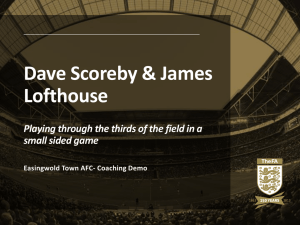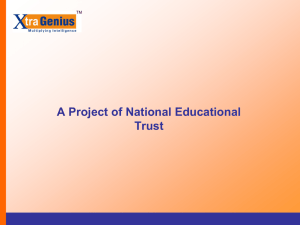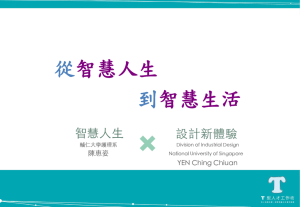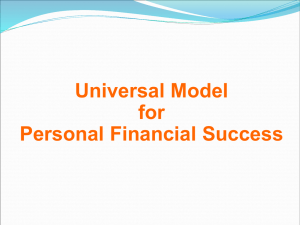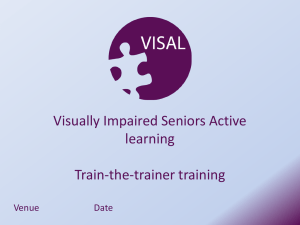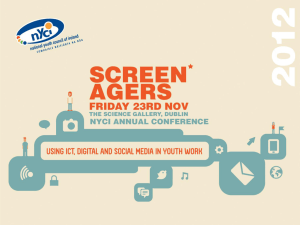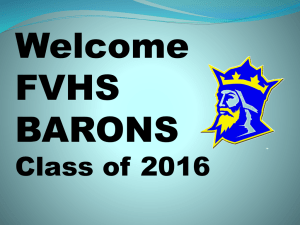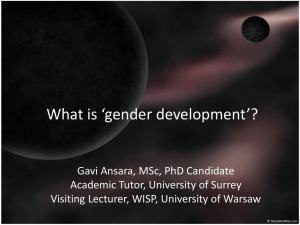My Career Path
advertisement
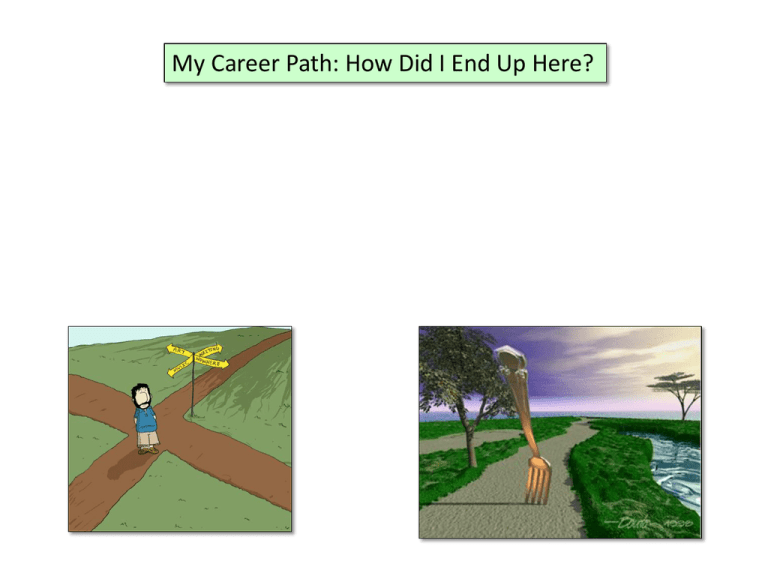
My Career Path: How Did I End Up Here? My Career Path: How Did I End Up Here? It’s all about choices and forks in the road It’s about making decisions with insufficient data, yet being comfortable that you know what you are doing (even thought you probably don’t) Nine Critical forks (decision points) In My Career College and Graduate School: 1. BS: bacteriology, anaerobic actinomycetes 4yrs Draft, ROTC, Military, Scholarships 2. PhD: microbiology, streptomyces sporulation; DNA hybridization 3.5 yrs; Nine Critical forks (decision points) In My Career Postdoctoral training: 3. Postdoc#1: Lambda replication/recombination 2 yrs Military Intelligence intervenes 4. Postdoc#2: Lambda recombination/recombinant DNA technology 4 yrs Nine Critical forks (decision points) In My Career Real Jobs 5. First job: NIH; staff scientist; R-DNA, end of Lambda, start of herpes virology 5 yrs 6. Second job: research director, Molecular Genetics Inc; biotech, virology, vaccines 3 yrs 7. Third job: research leader, DuPont; herpes genetics, vectors, neurobiology 6 yrs 8. Fourth job: senior research fellow DuPont-Merck; virology, neurobiology 2 yrs 9. Fifth job: Professor and Department chairman (6 yrs) at Princeton; herpes virology 16 yrs Some Crucial Forks Influencing Career Path (also known as “professional contributions”) Taught Advanced Bacterial Genetics at Cold Spring Harbor, summers, 5 yrs Study Section service 7 yrs, - Chair of Exp. Virol panel (now VirB), 2 yrs Editor in chief, J. Virology, 8 yrs – 2 more yrs left ASV President, 1 yr ASV Council, 2 yrs AAAS Board of Directors, 3 yrs Scientific Advisory Board, Pasteur Institute, 5+ yrs Cells and Virus Gordon Conference co-chair and chairman, 2 yrs Co-author: Principles of Virology – 11 yrs and counting Talks at meetings, various biotech scientific advisory boards, consulting for big Pharma – all the time Some Crucial Forks Influencing Career Path (also known as “professional contributions”) A passion for more than research Deciding to get out of the box Networking and expanding horizons What is a career? How do you make it happen? What I’ve learned that works for me Lesson #1 1. Try to do what you love or what you think you care deeply about 1a. It isn’t about the money 1b. You know it when you see it; When you are not doing what you love, its time to move on 1c. Don’t be afraid to try new things BUT be careful…… Lesson #1 corollary Be careful: your passion has to be framed carefully. Two crucial terms to frame professional passion: Cause and Challenge Cause: your personal alignment with a particular mission. What is the reason you are passionate about your work? e.g., are you passionate about the environment, medicine, science, teaching? Why? Challenge: your passion and enjoyment for the work itself You love the day-to-day activities. You say:” This is not a job; I can’t believe I get paid to do this.” e.g. you can’t wait to see the results; you love the ups and the downs of experiments, hypothesis-testing, grants, students, and paper/report writing. Lesson #1 via Apple wisdom “Your work is going to fill a large part of your life, and the only way to be truly satisfied is to do what you believe is great work” “And the only way to do great work is to love what you do.” “If you haven’t found it yet, keep looking and don’t settle.” “As with all matters of the heart, you’ll know when you find it.” Steve Jobs Lesson #2 2. Maintain constancy of purpose in your professional life as much as possible 2a. Focus on this purpose 2b. Focus doesn’t always mean doing the same little thing over and over 2c. Do things for your profession as much as possible with this purpose in mind 2d. Don’t be afraid to try new things Corollary to Rule #2 1. Never forget your family and friends This career stuff is not just about you. 2. Find another passion (e.g. fly fishing) to clear the mind of clutter Lesson #3 When you arrive at a fork in the road, take it. Yogi Berra 3. Follow your gut feelings when you must make a career decision 3a. BUT… DON’T OVER-ANALYZE; most of us can’t see further than a year or so down the road so don’t fret! 3b. Listen to people you trust, but not too much; it’s your career 3c. Remember Lesson #1 3d. Don’t be afraid to try new things My Career Path: How Did I End Up Here? It’s all about choices and forks in the road. It’s about making decisions with insufficient data. If I played the tape again, it is highly likely that a new path would have emerged. That is an interesting thought!
